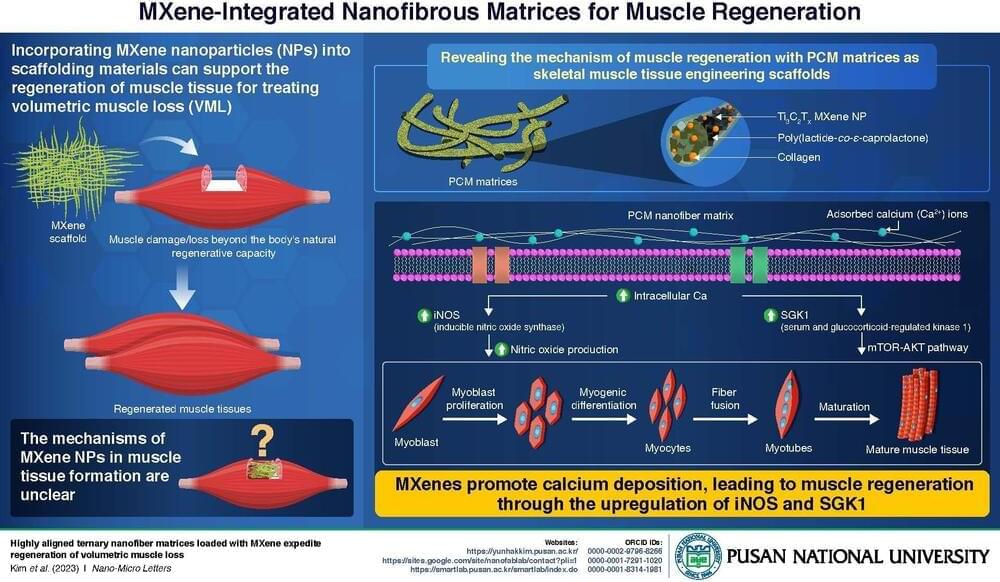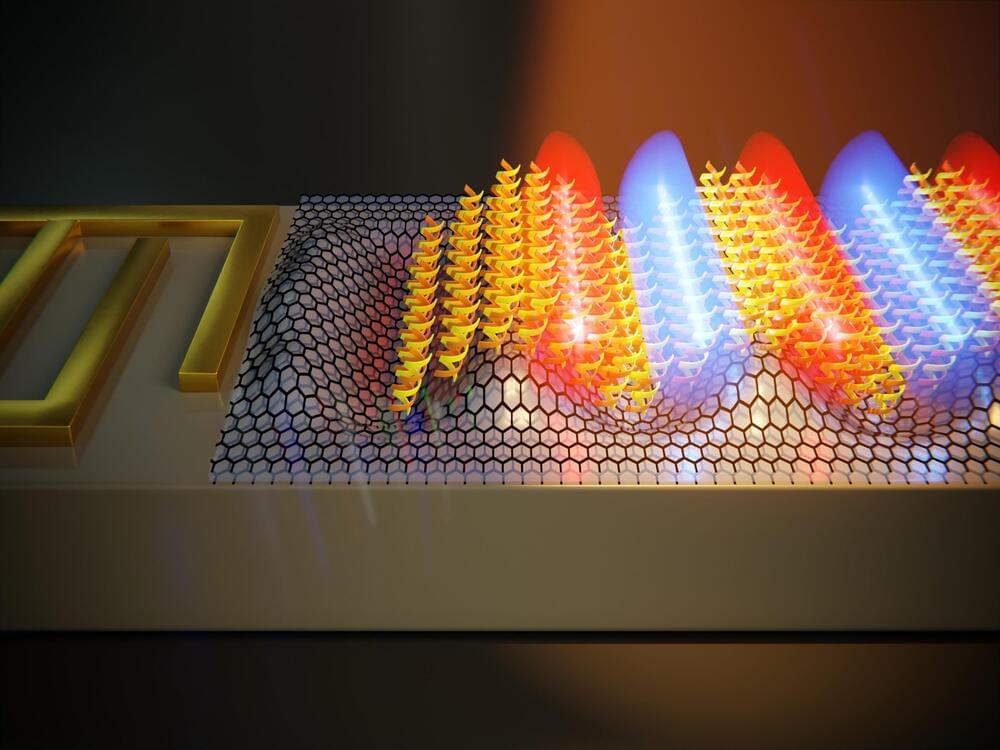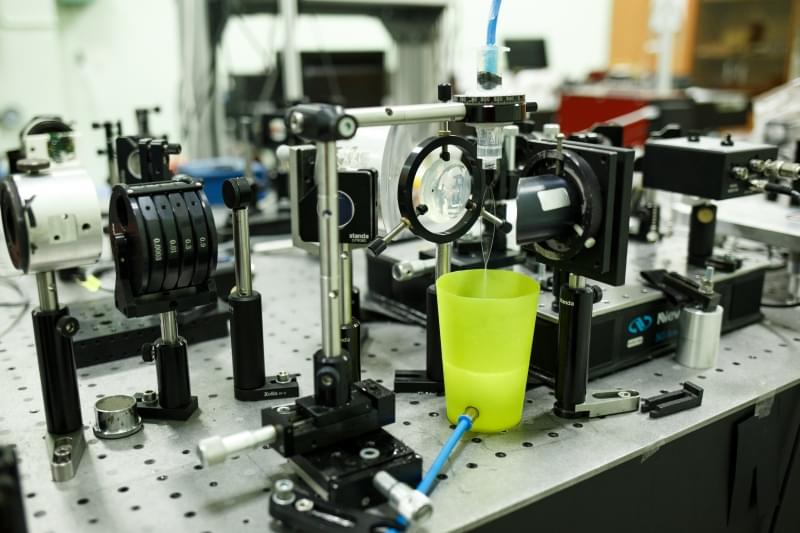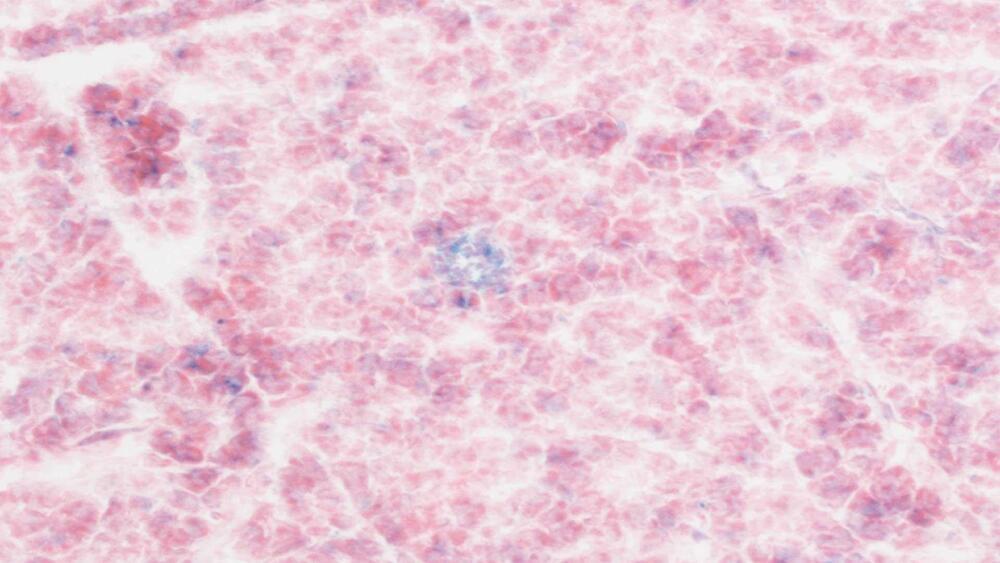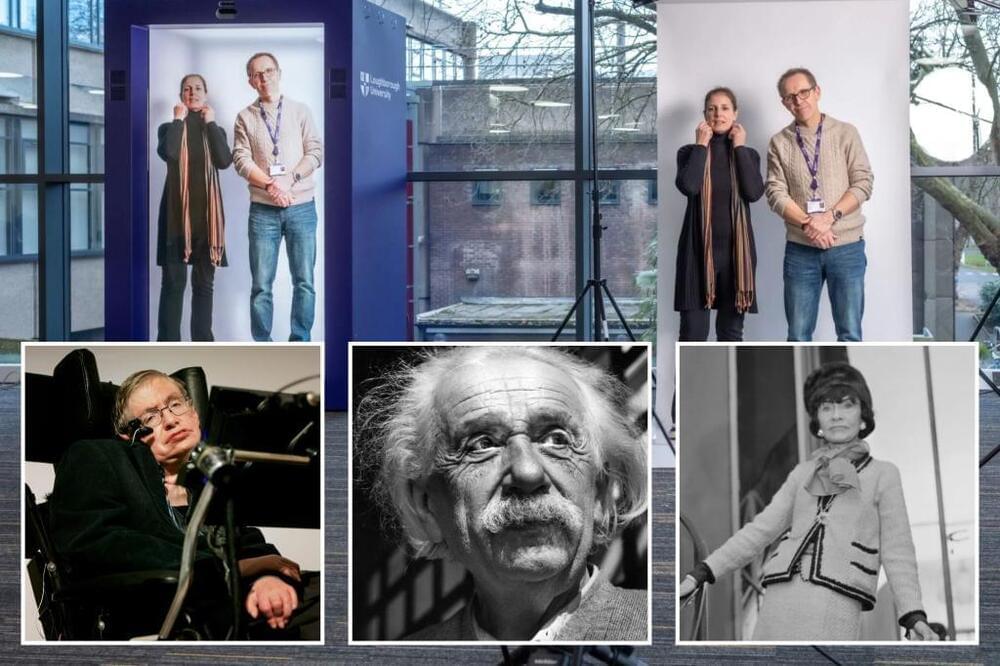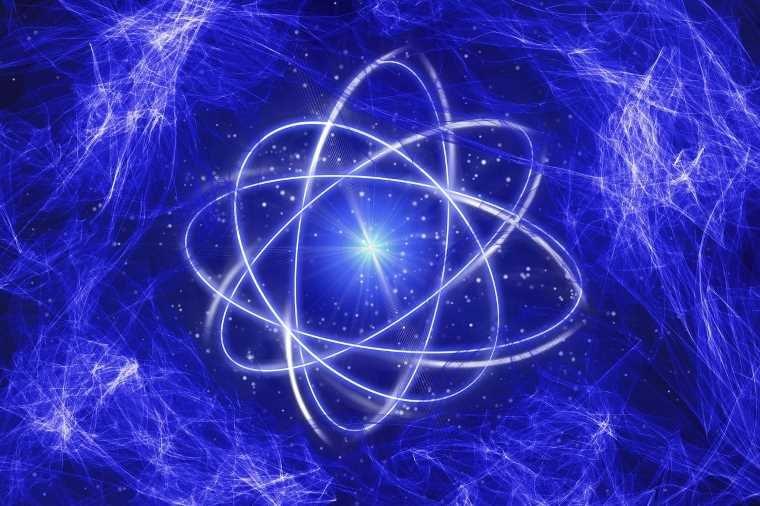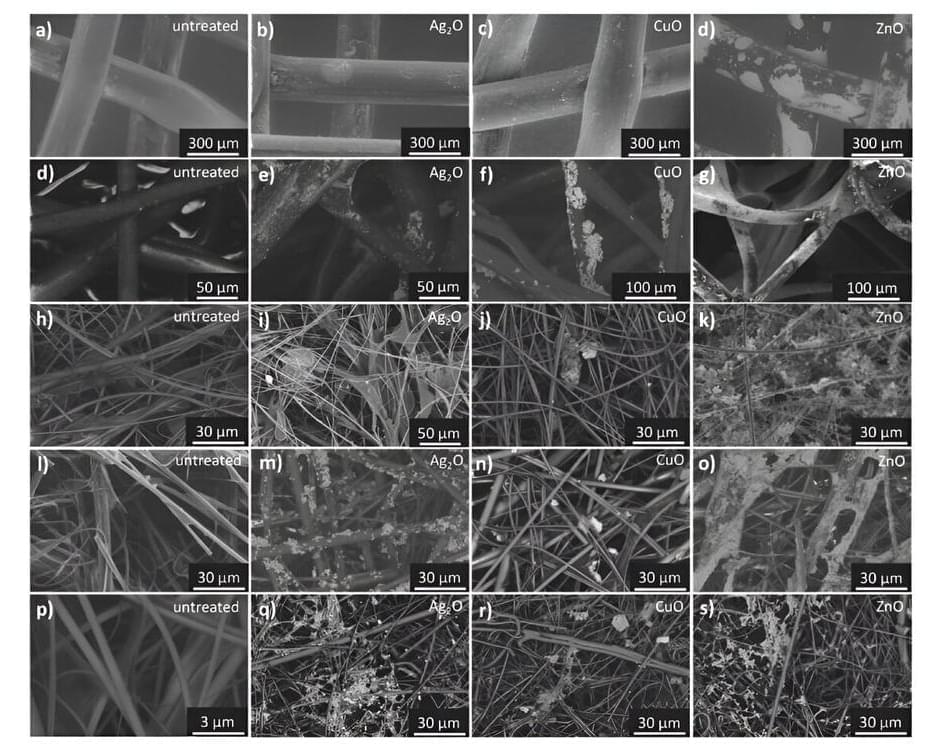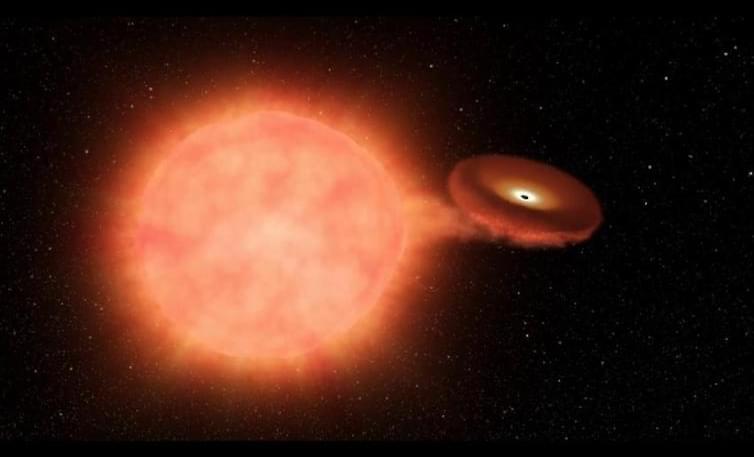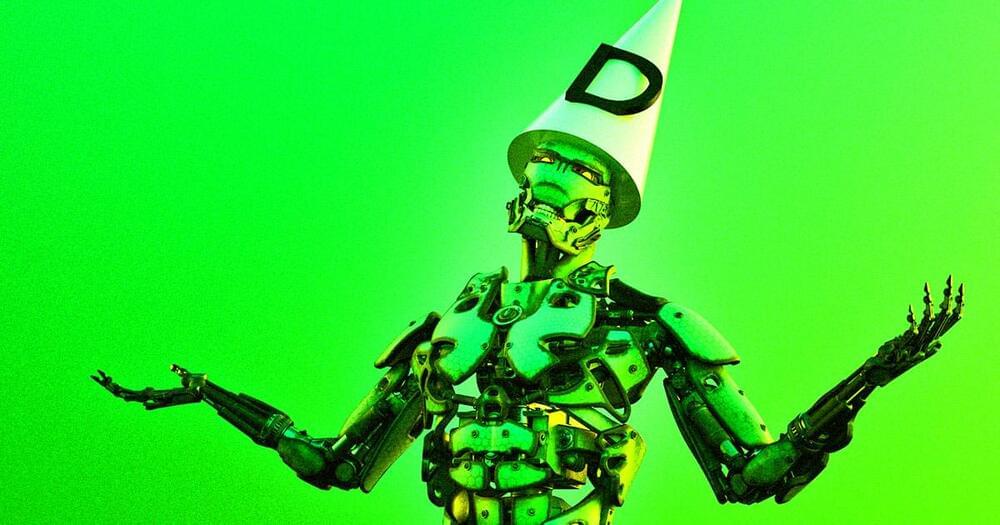Tissue engineering, which involves the use of grafts or scaffolds to aid cell regeneration, is emerging as a key medical practice for treating volumetric muscle loss (VML), a condition where a significant amount of muscle tissue is lost beyond the body’s natural regenerative capacity. To improve surgical outcomes, traditional muscle grafts are giving way to artificial scaffold materials, with MXene nanoparticles (NPs) standing out as a promising option.
MXene NPs are 2D materials primarily composed of transition-metal carbides and nitride. They are highly electrically conductive, can accommodate a wide range of functional groups, and have stacked structures that promote cell interactions and muscle growth. While there have been practical demonstrations in the laboratory showcasing their ability to promote the reconstruction of skeletal muscles, the specific mechanism by which they do so remains unclear.
To address this gap, Associate Professor Yun Hak Kim from the Department of Anatomy and Department of Biomedical Informatics, alongside Professors Suck Won Hong, and Dong-Wook Han from the Department of Cogno-Mechatronics Engineering at Pusan National University developed nanofibrous matrices containing MXene NPs as scaffolds. They used DNA sequencing to reveal the genes and biological pathways activated by MXene NPs to aid in muscle regeneration.
